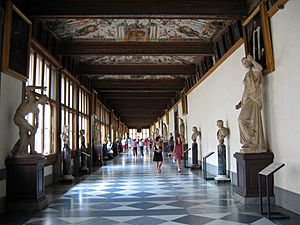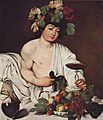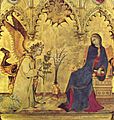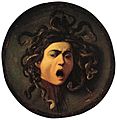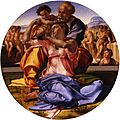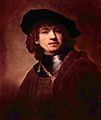Uffizi facts for kids
The Uffizi Gallery (in Italian: Galleria degli Uffizi) is one of the oldest and most famous art museums in the world. It is located in Florence, Italy, inside a building called the Palazzo degli Uffizi. This name means "Palace of Offices," which tells you a bit about its history!
Contents
The Uffizi Gallery: A Palace of Art
The Uffizi Gallery is not just a place to see art; the building itself has a fascinating story. It started as a place for government offices and later became a world-renowned art museum.
How the Uffizi Building Started
In 1560, a powerful ruler named Cosimo I de' Medici, the Duke of Tuscany, wanted new office buildings for the government workers (called magistrates) in Florence. He hired a famous architect named Giorgio Vasari to design them. This is why the building is called the "Uffizi," meaning "offices."
After Vasari, other architects like Alfonso Parigi and Bernardo Buontalenti continued the work. The buildings were finally finished in 1581.
The Design of the Palace
The office buildings are made of two main parts. They face each other across a long courtyard. One end of the courtyard opens onto a town square, and the other end opens onto the River Arno.
Giorgio Vasari designed the end facing the river in a special way. It looks like a screen or a backdrop from an Ancient Greek theater. It has arches that perfectly frame the view of the river.
From Offices to Art Museum
Duke Cosimo I de' Medici had a big idea. He wanted to display the best artworks from his family's huge collection on the top floor of the new building. However, this plan didn't fully happen until his son, Francesco I, became ruler.
Francesco I also asked Bernardo Buontalenti to design a very special room. This room is known as the Tribune of the Uffizi. It's an octagonal (eight-sided) room that held many of the most important paintings.
In the past, wealthy young men would often travel around Europe on a "Grand Tour." The Tribune of the Uffizi was one of the most important places they wanted to see.
Opening to the Public
At first, people could only visit the gallery if they made a special "request." They had to ask politely to be shown around.
The last person from the Medici family to own the collection was Anna Maria Lodovica. She made an agreement with the city of Florence. Thanks to her, the Uffizi Gallery officially opened its doors to the public in 1765.
Today, the Uffizi is one of the most popular tourist attractions in Florence. It can get very busy, especially in July, when people sometimes wait for hours to get in! The art collection is so large that some pieces are now displayed in other museums in Florence, like the Bargello, which houses many statues.
Amazing Art Collections
The Uffizi Gallery is home to thousands of incredible artworks, mostly paintings and sculptures from the Renaissance period. Here are some of the famous paintings you can see there:
- Cimabue: The Trinita Madonna
- Duccio: The Rucellai Madonna
- Giotto: The Ognissanti Madonna, the Badia Polyptych
- Simone Martini: The Annunciation
- Paolo Uccello: The Battle of San Romano
- Piero della Francesca: Diptych of Duke Federico da Montefeltro and Duchess Battista Sforza of Urbino
- Fra Filippo Lippi: Madonna with Child and Two Angels
- Andrea del Verrocchio and Leonardo da Vinci: The Baptism of Christ
- Hugo van der Goes: The Portinari Altarpiece
- Sandro Botticelli: Primavera, The Birth of Venus, The Adoration of the Magi
- Leonardo da Vinci: The Annunciation, The Adoration of the Magi
- Piero di Cosimo: Perseus liberating Andromeda
- Albrecht Dürer: The Adoration of the Magi
- Michelangelo: The Doni Tondo
- Raphael: Madonna of the Goldfinch, Pope Leo X with Cardinals Giulio de' Medici and Luigi de' Rossi
- Titian: Flora, Venus of Urbino
- Parmigianino: The Madonna of the Long Neck
- Caravaggio: Bacchus, The Sacrifice of Isaac, Medusa
The museum also has famous ancient sculptures, like the Two Wrestlers.
Gallery
-
Detail of The Birth of Venus (Botticelli) by Botticelli
-
Simone Martini, Annunciation
-
Botticelli, La Primavera (Springtime), c. 1478
-
Titian, Flora, 1515-1520
-
Piero della Francesca, Federico de Montefeltro and Battista Sforza
-
Uccello, Battle of San Romano
-
Fra Filippo Lippi, Madonna with Angels
-
Caravaggio, Medusa
-
Michelangelo, Tondo Doni
-
Rembrandt van Rijn, self-portrait
-
Raphael, self-portrait
-
Raphael, Madonna of the Goldfinch
-
Raphael, Portrait of Elisabetta Gonzaga
-
Raphael, Portrait of Pope Julius II
Related pages
Images for kids
-
Visitors observing Michelangelo painting Doni Tondo. The Uffizi is one of the most visited art museums in the world, with about 2 million visitors each year.
-
Statues of important figures like Cosimo de' Medici and Andrea Di Cione (Orcagna) outside the Uffizi Gallery.
See also
 In Spanish: Galería Uffizi para niños
In Spanish: Galería Uffizi para niños


